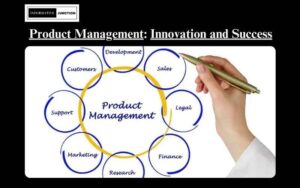Introduction
Every successful business begins with a robust business model—a blueprint that outlines how the company creates, delivers, and captures value. With the burgeoning innovation and technology advancements, business models have evolved considerably, providing entrepreneurs with a multitude of options to choose from. In this comprehensive blog post, we’ll delve into several different business models, their core characteristics, advantages, potential challenges, and real-world examples. We aim to equip you with the necessary insights to identify which model best fits your entrepreneurial venture.
1. Brick-and-Mortar Business Model: Traditional Foundations in a Digital World
The brick-and-mortar business model, the oldest and most traditional form, relies on a physical location to offer products or services to customers. We’ll explore the ongoing relevance of this model, its pros and cons, and the types of businesses for which it might be suitable. From neighborhood mom-and-pop stores to large retail chains, we’ll analyze how brick-and-mortar businesses adapt to the ever-changing landscape of digital commerce.
2. E-commerce Business Model: Unleashing the Power of the Digital Marketplace
In stark contrast to the traditional brick-and-mortar model, e-commerce operates exclusively online, offering products or services digitally. This section will delve into the different types of e-commerce models—B2B, B2C, C2C, and C2B—and their unique attributes. With success stories like Amazon and Alibaba, we’ll uncover the strategies behind their dominance and discuss how entrepreneurs can leverage e-commerce to reach a global audience.
3. Franchise Business Model: Building Brands and Expanding Reach
In the franchise model, a franchisee pays an initial fee and ongoing royalties to a franchisor in return for the right to use the latter’s trademark and business system. We’ll explore the intricacies of the franchise model, its potential benefits, and challenges. By examining well-known franchise brands, we’ll uncover the keys to successful franchise expansion and how entrepreneurs can build a network of thriving franchisees.
4. Subscription Business Model: Nurturing Customer Loyalty through Recurring Revenue
With the advent of the digital age, the subscription business model has seen exponential growth. From software services to curated product boxes, we’ll explore how businesses can leverage recurring revenue streams, customer retention strategies, and other key components of the subscription model. Drawing insights from subscription giants like Netflix and Dollar Shave Club, we’ll reveal how this model fosters long-term customer relationships.
5. Freemium Business Model: Balancing Free and Premium Offerings for Sustainable Growth
The freemium model offers a basic product or service for free while charging for premium features or upgrades. This section will delve into successful freemium models in the tech industry, their ability to attract a broad user base, and considerations for revenue generation. By analyzing companies like Spotify and Dropbox, we’ll unveil the art of striking the perfect balance between free offerings and upselling premium features.
6. Peer-to-Peer Business Model: Embracing Decentralization and Sharing Economy
The peer-to-peer (P2P) business model capitalizes on network effects and technology to connect individuals for transactions, bypassing traditional intermediaries. We’ll delve into examples like ride-sharing and crowdfunding platforms and discuss how this model empowers individuals and fuels collaborative consumption. Through real-world success stories, we’ll explore how P2P platforms disrupt industries and empower users.
7. Sharing Economy Business Model: Building Trust and Utilizing Underutilized Resources
The sharing economy model harnesses the power of sharing underutilized assets—from homes to cars and even skills. This section will discuss the role of platforms like Airbnb and Uber in the sharing economy and how businesses can navigate this relatively new terrain. By analyzing challenges such as regulatory compliance and building user trust, we’ll uncover the keys to success in the sharing economy.
8. Marketplace Business Model: Facilitating Transactions and Fostering Community
Marketplace businesses act as intermediaries that connect buyers and sellers, typically taking a commission from each transaction. We’ll explore how marketplace giants like Amazon and eBay have succeeded and discuss key considerations for those looking to enter this space. From maintaining a fair and competitive environment to building a strong community, we’ll explore how marketplace businesses thrive in the digital age.
9. Direct-to-Consumer (D2C) Business Model: Directly Engaging Customers for Deeper Connections
The D2C model enables manufacturers to sell directly to the end customer, bypassing traditional retailers or middlemen. We’ll delve into the rise of D2C businesses, their advantages in controlling the customer experience, and potential challenges to overcome. By analyzing D2C pioneers like Warby Parker and Casper, we’ll reveal how this model creates stronger connections between brands and consumers.
10. SaaS Business Model: Software as a Service and the Future of Tech
The Software-as-a-Service (SaaS) model has revolutionized the tech industry by offering software solutions on a subscription basis. We’ll explore the scalability of SaaS businesses, their ability to provide consistent revenue, and how they continually provide value to customers. By examining SaaS success stories such as Salesforce and Slack, we’ll uncover the secrets behind their growth and customer retention strategies.
Conclusion
Choosing the right business model is a critical step in the journey of every entrepreneur. It’s a strategic decision that significantly impacts your venture’s value proposition, customer relationships, revenue streams, and competitive edge. While the decision can be complex and nuanced, understanding the ins and outs of different business models can empower you to make an informed choice. Remember, the best business model for your venture is the one that most effectively meets the needs of your target customers, aligns with your operational capabilities, and maximizes your business’s unique value. As your business grows and evolves, be open to revisiting and tweaking your business model—it’s all part of the exciting journey of entrepreneurship. With the right business model as your foundation, you can set your venture on the path to success and chart a course for sustainable growth and prosperity in today’s dynamic business landscape.
Connect with Informative Junction
Click Here if you want to read more Interesting Blogs.




